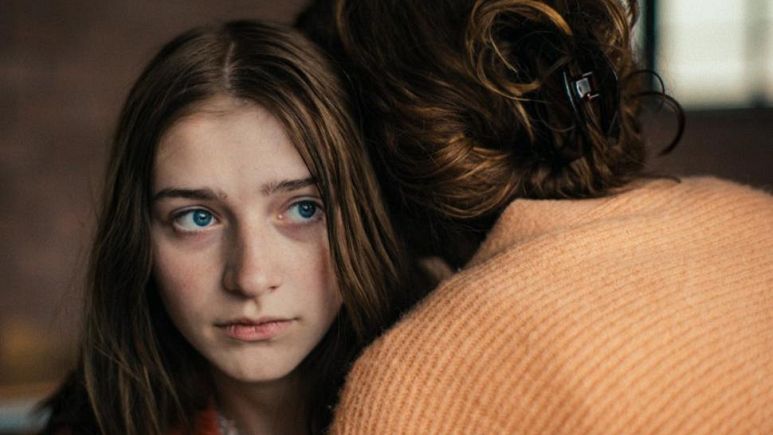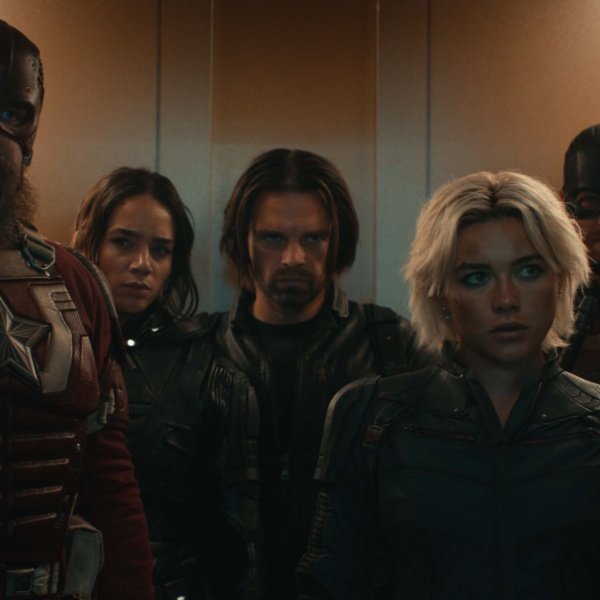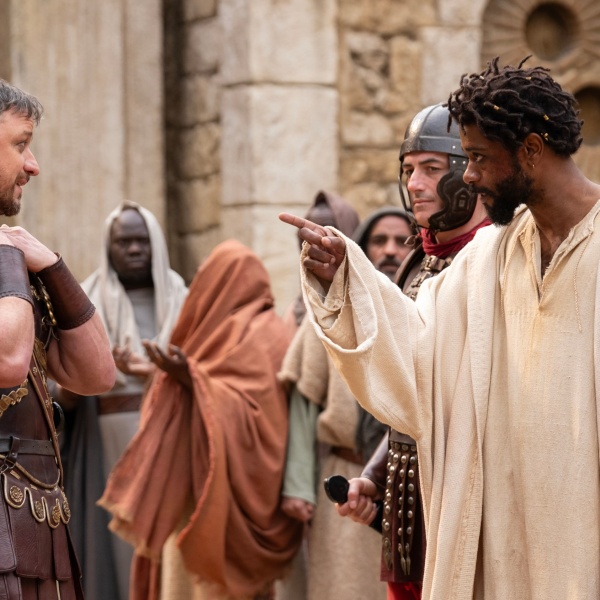It’s been said that Stephen King’s first novel “Carrie” filled him with such self-doubt that its notes, drafts, and even eventual manuscript were nearly thrown out by the author, condemned into eternal obscurity. Were it not for King’s own wife, the tale of a bullied telekinetic teen with an abusive puritanical mother would have ended up permanently in the trash, unable to stand alone as a wonderful work or inspire other stories of its ilk.
Consider Fien Troch’s “Holly.” The new film suggests that our eponymous young, bullied high-schooler might end up in the midst of a similar cathartic orgy of violence as Carrie, disposed of with little regard for her value. But unlike “Carrie” (and Carrie) “Holly” doesn’t gift her audience with the catharsis of all those horrible high school alpha bullies ending up in a pile of bone and charred sinew. (Funnily enough, King has a new book, also titled “Holly,” out just this month; the two works are not related.)
Holly (Cathalina Geeraerts) is an outcast too, with her own special skills and a difficult home life that sees her dinner options largely limited to rotting fruit and dried noodles. Her specific abilities are not as straightforward as Carrie’s telekinesis (and the ill-fated prom night in which they reach their height), but Holly’s school experience soon finds herself adjacent to a similar scale of tragedy. First, Holly calls into school, saying she is unable to come in because of a terrible sense that something bad is going to happen. Only later does she discover that a towering inferno engulfed the classrooms, leaving 10 classmates dead and many more at the school, students and teachers alike, injured and utterly traumatized.
Nine months later, many things have returned to seeming normalcy — including that Holly is as unpopular as ever and that her single mother-led home is just as deprived and neglected. Yet, slowly, those around her have come to believe that Holly’s sense of foreboding around the day of the fire was no coincidence and that she possesses special power to predict the future, speak to the dead, and heal the wounded. These revelations have turned her into an uncertain soothsayer, doomed to deal with traumatized survivors, a burden that eats away at her soul. And still, she remains a repugnant figure, and no amount of special skills can convince her peers of a more complex view of this young woman.
Much like Carrie, nothing with Holly is straightforward, she is too an outsider and, despite having the sort of face, hair, and skin most teenagers would pray for, she’s considered an abomination by her peers. When we meet her, she has no friends beyond her sister (Maya Louisa Sterkendries) and her boyfriend Bart (Felix Heremans), who presents with non-specific neuro-divergence. The bond between the two never wavers; even as Holly becomes something of a local celebrity, she still rushes back to be wrapped in his arms and tell him she finds him “the most normal one of all.”

Precisely how “normal” Holly is is up for debate, while she is frequently overwhelmed and perplexed — and the film mines that ambiguity — Geeraerts’ performance is both unsettled and unspecific. As she becomes a sort of spiritual healer for the community, with people handing her a crisp €50 in exchange for a hug, it’s never entirely established what Holly is doing for the people that near-worship her or why her fellow students find her so repugnant. (There are hints at neater solutions throughout, including the possibility of both supernatural and entirely natural behavior.)
Her family delights in her emerging status as local messiah and the cash rewards and bunches of flowers that come with it, but Holly herself doesn’t inspire quite the same impact from the audience. The film is determined to stay mired in ambiguity and, as a result, our protagonist pivots between terrifying, mysterious, and total boredom. Despite a horror-evoking synth score, “Holly” never tips into any of the grotesque potential it sets up, and we are left with little knowledge about the events and the consequences beyond a vague sense of a broader melancholy.
Depressingly for a film named after its female protagonist, the most interesting element of “Holly” is…Holly’s boyfriend Bart. He has an audacity that proves engaging at every turn, whether he’s telling an edgy joke (“What do you call a Black man on the moon? An astronaut, of course, you racist.”), willing to take a beating in order to find out where Holly is, or hinting at the dark potential of his desire to become a hero, he’s written and performed with specificity that is lacking in so much of the ensemble. Too bad this isn’t “Bart.”
What’s most frustrating about “Holly” is its potential. No one is suggesting that Troch’s film should offer a full exploration of a teenage girl becoming the messiah (well, maybe, Ryan Murphy would see this material and suggest that), but its strange for a film to commence with the immolation of her peers and then spend the next 90 minutes barely shifting those relationships.
The horrors of teenage girlhood don’t start and end with “Carrie”; if anything, radical puritanism has taken on an entirely new cast, and contemporary Belgian girls like Holly would likely have very different reactions to menstruation than poor Carrie White, but they would certainly have reactions. While there are plenty of intrusive little moments that hint at how power may be handled by a vulnerable young woman, Holly seems so unsure, and “Holly” so indifferent to her own potential, that the entire film feels like more of a chore than a revelation. There’s no denying the pain that that Holly is in (hell, being a teenage girl is fate you’d wish on no one), but there was so much more pleasure to be had with this particular premise.
Grade: C+
“Holly” premiered at the 2023 Venice Film Festival. It is currently seeking U.S. distribution.


